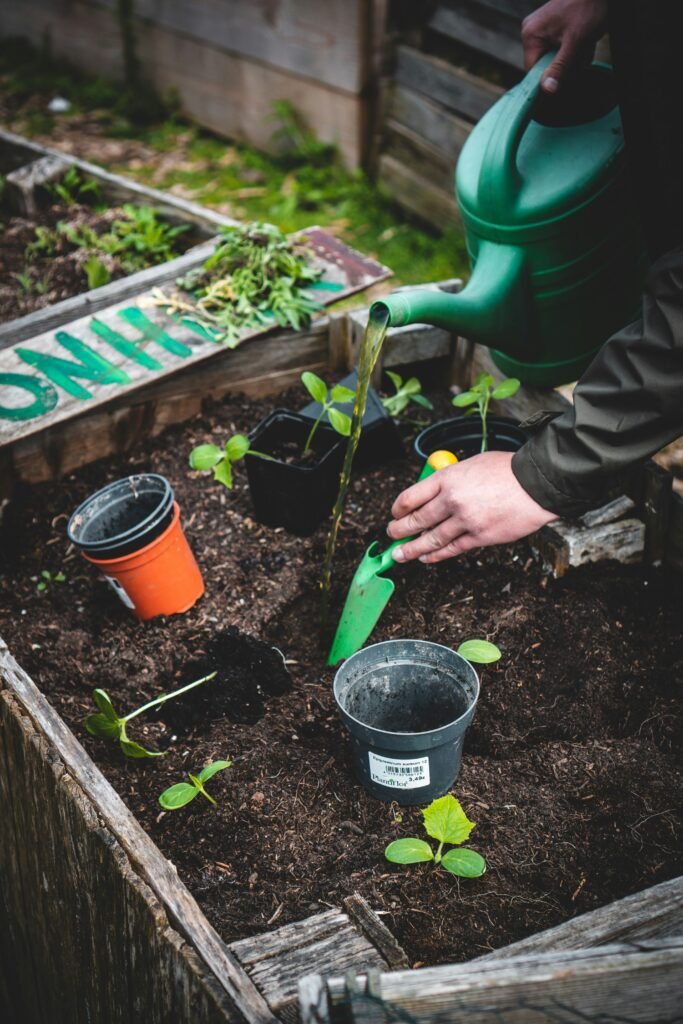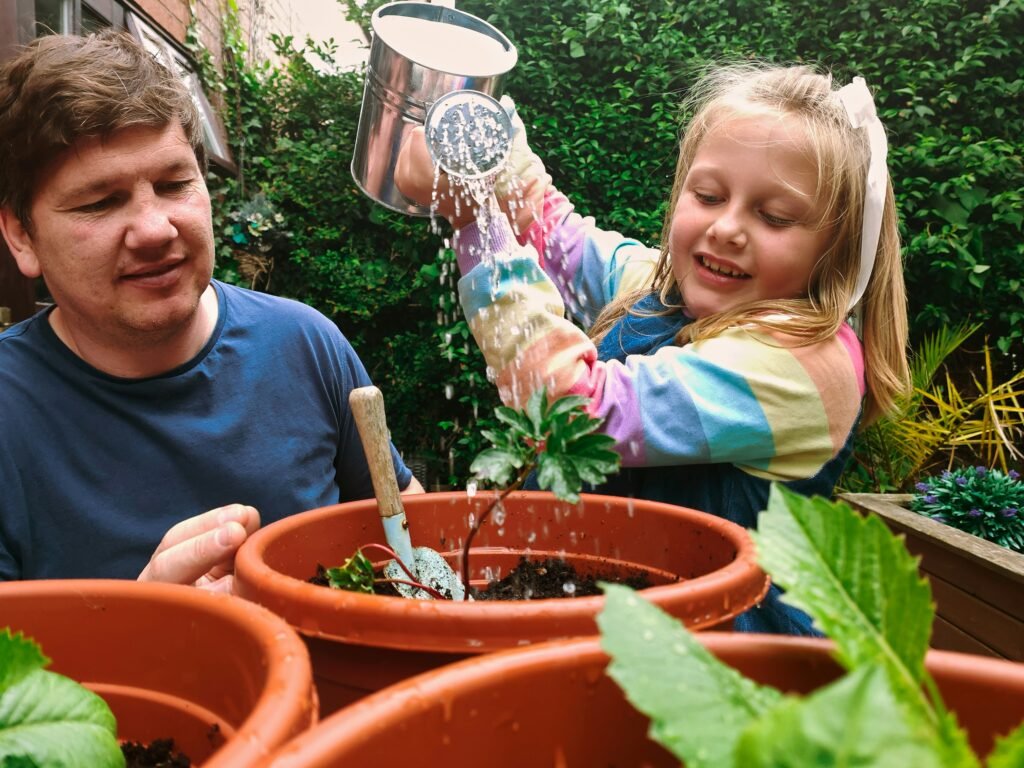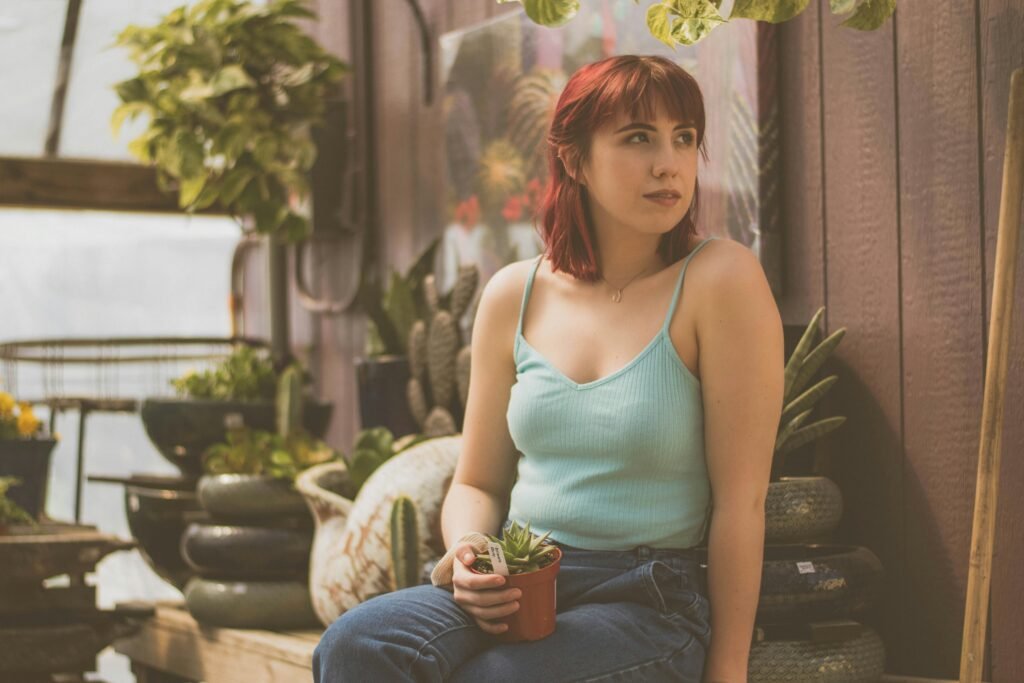Transform your garden into a vibrant oasis with the simple yet creative idea of upcycled crate garden planters. By repurposing old crates and turning them into unique planters, you can add a touch of charm and character to your outdoor space. Not only is this a cost-effective solution, but it also allows you to reduce waste and contribute to a more sustainable lifestyle. With a few simple steps, you can transform an ordinary crate into a stunning planter that will be the envy of your neighbors. Get ready to breathe new life into your garden with these upcycled crate garden planters.
Benefits of Upcycled Crate Garden Planters
Environmentally friendly
Using upcycled crates as garden planters is a fantastic way to be environmentally friendly. By repurposing old crates that might otherwise end up in landfills, you are reducing waste and giving these materials a new purpose. This helps to minimize the demand for new materials, conserving resources and reducing the carbon footprint associated with production and transportation.
Cost-effective
One of the major benefits of upcycled crate garden planters is their cost-effectiveness. Instead of purchasing expensive garden planters from stores, you can simply use old crates that you may already have or can easily find for free or at a minimal cost. This allows you to save money while still adding a unique and charming touch to your garden.
Versatile and customizable
Upcycled crate garden planters offer endless possibilities in terms of design and customization. Depending on your preferences and the style of your garden, you can choose crates of different sizes and shapes. You can also paint or stain them to match your desired aesthetic. This versatility allows you to create a garden that reflects your personal taste and style.
Allow for better drainage
The structure and design of crates make them excellent for planters as they allow for better drainage. Most crates have gaps or slatted surfaces that allow excess water to drain away from the plants, preventing waterlogging and root rot. This ensures better overall plant health and reduces the risk of plant diseases caused by excessive moisture.
Provide good insulation
Another advantage of using upcycled crates as garden planters is that they provide insulation for your plants. The thick wooden walls of the crates act as insulation, protecting the plants from extreme temperature fluctuations. This can be particularly beneficial for plants that are sensitive to cold or hot weather conditions. The insulation provided by the crates helps to create a microclimate around the plants, promoting their healthy growth and development.
Choosing the Right Crate
Select appropriate size and shape
When choosing crates for your garden planters, it’s important to select ones that are the appropriate size and shape for your plants. Consider the root depth and spread of the plants you plan to grow, and choose a crate that can accommodate their needs. A larger crate will provide more space for root growth, while a smaller crate may work well for smaller plants or herbs.
Ensure the crate is sturdy and in good condition
Before using a crate as a garden planter, make sure it is sturdy and in good condition. Avoid using crates that are damaged, rotting, or have weak areas. A sturdy crate will provide a stable foundation for your plants and ensure their proper growth and support.
Consider the material of the crate
Different materials, such as wood or metal, can be used to make crates. Consider the material of the crate and its compatibility with the plants you plan to grow. Wooden crates are popular for their natural look and warmth, while metal crates can provide a more modern and industrial aesthetic.
Check for any treatments or chemicals
It’s important to check if the crate has been treated with any chemicals or substances that could be harmful to your plants. Some crates may have been treated with pesticides or other chemicals that can leach into the soil and potentially harm your plants. Look for crates that are made from untreated or non-toxic materials to ensure the health and safety of your garden.

This image is property of images.unsplash.com.
Preparing the Crate
Clean the crate thoroughly
Before using a crate as a garden planter, it’s essential to clean it thoroughly. Remove any dirt, debris, or remnants of previous contents from the crate. Use a brush or a damp cloth to wipe the surfaces clean. This will help promote a healthy growing environment for your plants.
Remove any nails or staples
Inspect the crate for any nails, staples, or other sharp objects that could harm your plants or yourself. Carefully remove any protruding or loose nails or staples to ensure the safety of your garden. Sand down any rough surfaces that could potentially damage the roots or foliage of your plants.
Sand or paint the crate if desired
If you want to enhance the appearance of the crate, you can sand it to smooth out any rough edges or surfaces. Sanding the crate will also make it more comfortable to handle. Additionally, you can paint the crate with non-toxic paint or stain it to match your garden’s color scheme or personal style. Be sure to use paint or stain that is safe for plants and will not leach harmful chemicals into the soil.
Drill drainage holes
To ensure proper drainage for your plants, it’s important to drill drainage holes in the bottom of the crate. Use a drill with a suitable size bit to create several drainage holes. These holes will allow excess water to escape, preventing waterlogging and promoting healthy root development.
Choosing Plants for Crate Garden Planters
Consider the size and depth of the crate
When selecting plants for your crate garden planters, consider the size and depth of the crate. For larger crates, you can choose plants with deeper root systems and larger growth habits. Smaller crates are better suited for compact plants or herbs.
Select plants suitable for the lighting conditions
Take into account the lighting conditions in your garden and choose plants that are suitable for those conditions. Some plants thrive in full sun, while others prefer partial shade or shade. By selecting plants that are a good match for the available light, you can ensure their optimal growth and development.
Choose plants that have similar water and nutrient requirements
To simplify maintenance and ensure the well-being of your plants, choose plants that have similar water and nutrient requirements. Grouping together plants with similar needs makes it easier to provide them with appropriate care, such as watering and fertilizing.
Mix different types of plants for variety and visual appeal
To create an interesting and visually appealing crate garden planter, consider mixing different types of plants. Combine plants with different colors, textures, and growth habits to add variety and visual interest to your garden. This mixture of plants will create a dynamic and vibrant display.

This image is property of images.unsplash.com.
Arranging the Plants in the Crate Garden Planter
Organize plants according to their size and height
When arranging plants in your crate garden planter, consider their size and height. Place taller plants towards the back of the crate, so they don’t overshadow smaller plants. This arrangement allows all the plants to receive sufficient sunlight and prevents overcrowding.
Place taller plants towards the back
To create a visually pleasing arrangement, place taller plants towards the back of the crate. This creates a sense of depth and perspective, making your garden planter more visually appealing when viewed from different angles.
Create a focal point or centerpiece
Consider creating a focal point or centerpiece in your crate garden planter. This can be achieved by placing a particularly eye-catching plant, a unique ornament, or a decorative feature in the center of the crate. The focal point will draw attention and serve as a visual anchor for your garden.
Use trailing plants to add depth and cascading effect
To add depth and a cascading effect to your crate garden planter, incorporate trailing plants. Trailing plants can be placed towards the edges of the crate, allowing them to spill over the sides and create a beautiful cascade of foliage. This adds an element of elegance and softness to your garden.
Caring for Crate Garden Planters
Water appropriately
Proper watering is essential for the health and vitality of your plants. Water your crate garden planter according to the specific needs of the plants you have chosen. Some plants prefer drier conditions, while others require more frequent watering. Be mindful not to overwater or underwater your plants, as both can lead to stress and potential damage.
Monitor soil moisture levels regularly
To ensure your crate garden planter has adequate moisture, regularly monitor the soil moisture levels. Insert your finger about an inch into the soil to check for moisture. If the soil feels dry, it’s time to water your plants. If the soil feels wet or overly saturated, allow it to dry out before watering again.
Fertilize as needed
To provide your plants with essential nutrients, fertilize them as needed. Choose a fertilizer that is appropriate for the plants you are growing and follow the manufacturer’s instructions for application. Fertilizing your plants helps promote healthy growth and enhances their overall appearance.
Prune and trim plants to maintain shape and prevent overcrowding
Regularly prune and trim your plants to maintain their shape and prevent overcrowding. Remove any dead or damaged foliage to encourage new growth. Trimming back overgrown branches or stems helps promote a more balanced and tidy appearance for your crate garden planter.

This image is property of images.unsplash.com.
Creative Ideas for Upcycled Crate Garden Planters
Vertical crate garden
Get creative with your upcycled crate garden planters by creating a vertical garden. Stack crates on top of each other or mount them vertically on a wall or fence. Fill each crate with plants to create a beautiful and space-saving display. Vertical crate gardens are not only visually stunning but also allow you to maximize the use of vertical space in your garden.
Herb garden in a crate
Transform a crate into an herb garden by planting a variety of herbs. Place the crate near your kitchen for easy access to fresh herbs while cooking. This practical and attractive solution allows you to enjoy the convenience and flavor of fresh herbs all year round.
Succulent crate garden
Succulents are low-maintenance plants that thrive in well-drained conditions, making them perfect for crate garden planters. Create a stunning succulent garden by selecting a variety of colorful and textured succulent plants. With their unique shapes and vibrant colors, succulents will add an interesting and eye-catching element to your garden.
Flower crate garden
Bring vibrant and fragrant flowers to your garden by creating a flower crate garden. Choose a variety of flowering plants in different colors, sizes, and shapes. Arrange them in an aesthetically pleasing way to create a beautiful and captivating display. A flower crate garden will not only enhance the visual appeal of your garden but also attract pollinators like bees and butterflies.
Fruit and vegetable crate garden
Enjoy the fruits of your labor by creating a fruit and vegetable crate garden. Grow your favorite fruits and vegetables in a crate garden to provide fresh and nutritious produce for your meals. From tomatoes and peppers to strawberries and herbs, you can create a bountiful and productive garden in a compact space.
Tips for Upcycling Other Materials as Garden Planters
Wooden pallets
Wooden pallets can be transformed into unique and stylish garden planters. Stack pallets vertically or horizontally to create multiple levels for planting. Fill the spaces between the pallet slats with soil and plant your favorite flowers or herbs. The result is a rustic and charming garden feature that adds character to your outdoor space.
Tin cans
Upcycle tin cans into creative and budget-friendly garden planters. Clean and paint the cans in your preferred colors. Drill drainage holes in the bottom of each can, fill them with soil, and plant seeds or small plants. Tin can planters are perfect for small herbs or flowers, and they can be easily arranged in any space for a whimsical touch.
Old furniture
Give new life to old furniture by repurposing it as garden planters. Chairs, dressers, and even drawers can be transformed into unique and eye-catching planter displays. Remove any upholstery or fabric and add drainage holes as needed. Fill the furniture with soil and plants, and watch as your garden flourishes in these one-of-a-kind planters.
Vintage containers
Vintage containers, such as antique buckets, urns, or watering cans, can add a touch of nostalgia and elegance to your garden. These containers can be found at flea markets, thrift stores, or even in your own attic. Repurpose them as garden planters by drilling drainage holes and filling them with soil. Plant your favorite flowers or herbs to create a charming and vintage-inspired garden display.
Wine barrels
Wine barrels are an excellent choice for creating large and stunning garden planters. Cut the top of the barrel open and remove any excess materials or debris. Fill the barrel with a mix of soil and compost, and plant larger plants or even small trees. Wine barrel planters make a bold statement in any garden and are particularly suited for creating focal points or anchoring larger outdoor spaces.
Enhancing the Visual Appeal of Crate Garden Planters
Paint or stain the crate
To enhance the visual appeal of your crate garden planter, consider painting or staining the crate. Choose a color that complements your garden’s overall aesthetic and style. You can opt for bright and bold colors to make a statement, or choose a more natural and subdued palette that blends seamlessly with your garden’s surroundings.
Add decorative accents or stencils
Personalize your crate garden planter by adding decorative accents or stencils to the crate. You can use stencils to create intricate patterns or designs on the crate, or attach decorative accents such as ribbons, bows, or small ornaments to give it a unique touch. These decorative elements will add personality and charm to your garden.
Use fabric or burlap to line the crate
Line the inside of the crate with fabric or burlap to add a touch of texture and interest. This lining not only adds a decorative element but also helps retain moisture in the soil, ensuring the optimal growth of your plants. Choose fabrics or burlap that are durable and resistant to moisture for long-lasting results.
Incorporate colorful plants and flowers
To make your crate garden planter visually captivating, incorporate colorful plants and flowers. Select a mix of vibrant and contrasting colors to create a lively and eye-catching display. The pops of color will draw attention and make your garden stand out. Consider using seasonal flowers to change up the colors throughout the year.
Final Thoughts
Upcycled crate garden planters offer a sustainable and creative solution to transform your garden. From the environmental benefits of repurposing old crates to the versatility and customization options they provide, using crates as garden planters is a rewarding and enjoyable project. By carefully selecting the right crate, preparing it properly, and choosing suitable plants, you can create a stunning and thriving garden. Get creative with different ideas, experiment with various materials, and personalize your garden to make it a unique reflection of your style and personality. Enjoy the process of transforming your garden with upcycled crate garden planters, and reap the many rewards they have to offer.

